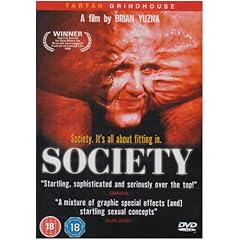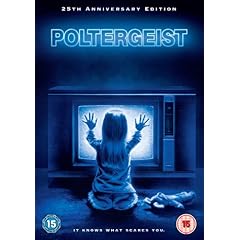October/November – my favourite time of the year. It’s a time of monsters and explosions, fire and masks, and so what if it’s got a little commercialised over the years, it still beats the stress of Christmas and the damp squib of Easter. Maybe that isn’t very Christian of me, especially in view of the pagan associations with Halloween and that Guy Fawkes’ night is celebrating an attempted terrorist atrocity, but hell, if these two events aren’t just a little more fun than the religious ones.
This weekend I’ll be wrapping up both in 48 hours of shocks and loud bangs. Tomorrow I’m attending
Chatsworth Hall’s fireworks spectacular – a night of many loud explosions above one of, if not
the, finest stately homes in England. And tonight while Sarah embarks on a night-shift, I’ll be embarking on a long tradition that goes back to when I was 14: watching a double-helping of horror movies.
I was too young when the double-feature breathed it’s last at the cinema. Indeed, the only time I watched a double-movie at the flicks was as an eight year old when some bright spark decided to show
Star Wars and
Empire Strikes Back, back to back over one hot summer (a couple of years before
Return of the Jedi). Rodriguez and Tarantino recently attempted a revival with
Grindhouse, but unfortunately both films were released separately over here in the UK so the effect was diminished. I’ve kept this tradition alive in the privacy of my own home and since 1989, with a few exceptions, I’ve been watching double-feature horror films every Halloween night.

Tonight it’s the turn of
Poltergeist and
Society. I’ll leave
Poltergeist for a later blog entry (it had a profound effect on me all those years ago and deserves a blog entry on its own) but I’ll say a little about
Society. I have seen it just the twice, the first time when I was fifteen years old when I reached up on tip-toes to pluck it from the top shelf of the video-tape library in Holmes Chapel. My reasons for choosing it then - and nagging my dad to rent it out for me - came from a gushing review of the film in FEAR magazine. FEAR was a constant revelation, guiding me to many films I was ignorant of (and on occasion films that I wish I was still ignorant of, but then horror-tastes are as subjective as humour – some films just do it, others don’t). I’m not sure what I expected, but perhaps I was a little disappointed, after all
Society is a political film as well as a body horror. For a fifteen year old,
Society was just a little too sophisticated. To prove the point, I watched it again several years later on TV and found it more rewarding. Sure it has its camp moments, and the denouement is bonkers, but compared to the torture-porn-rubbish the modern film fan is fed these days,
Society is a work of genius.
You’ll find more about the plot and reviews of
Society by
clicking here (it’s not my job to rehash what has already been written, and
IMDB is the bible when it comes to movies), needless to say it’s a perfect double-feature movie, and a perfect Halloween offering, simply because it is so utterly daft and enjoyable. But there’s also the menace and the paranoia that good horror films wear on their shirt-sleeves.
The Thing is another film that does this well, though compared to
Society,
The Thing is unrelentingly bleak. While Carpenter’s paranoia is “trust no one”,
Society is more a case of “are these really my parents?” It wakes a few primordial fears of isolation and alienation that everyone feels once in a while when you look in the mirror and see that mask of flesh and bone staring back, giving it a prod, not because you’re unhappy with what you’re seeing, but because you can’t quite shake that feeling the face looking back at you isn’t completely real.

A week ago I discovered
Society for seven quid in Zaavi, right around the corner from where I work, and I’m looking forward to rediscovering it tonight. As double-features go,
Society is the perfect company for
Poltergeist, a Spielberg-horror where magic and nastiness go hand in hand. One’s a social ghost story, the other a horror of mutated society. And you know, I might even squeeze in an episode of
Masters of Horror between each sitting, along with a decent curry and maybe a nice cold bottle of beer…
Here’s to kicking off the Season of Fire and Masks!
(
For more on the subject of great horror films, David Isaak has also posted an entry on having a good scare... I guess there must be something in the air!)

 And on the 16th January, the book launch of The Hoard of Mhorrer will take place at Goldsboro Books, Cecil Court (off Charing Cross Road). For more information please click here. (By the way, if you love signed first editions, bring some extra cash with you – Goldsboro Books is an Aladdin’s cave!)
And on the 16th January, the book launch of The Hoard of Mhorrer will take place at Goldsboro Books, Cecil Court (off Charing Cross Road). For more information please click here. (By the way, if you love signed first editions, bring some extra cash with you – Goldsboro Books is an Aladdin’s cave!)



















